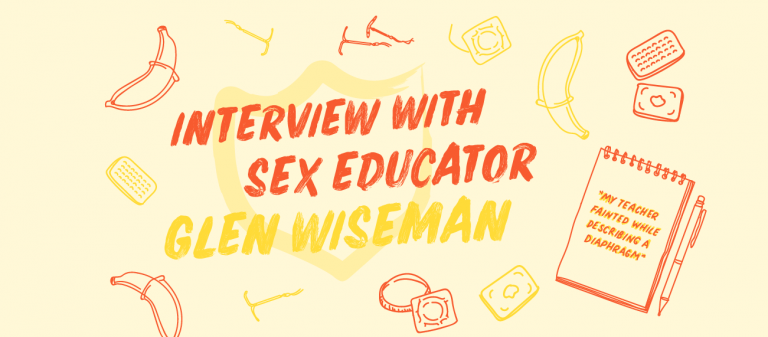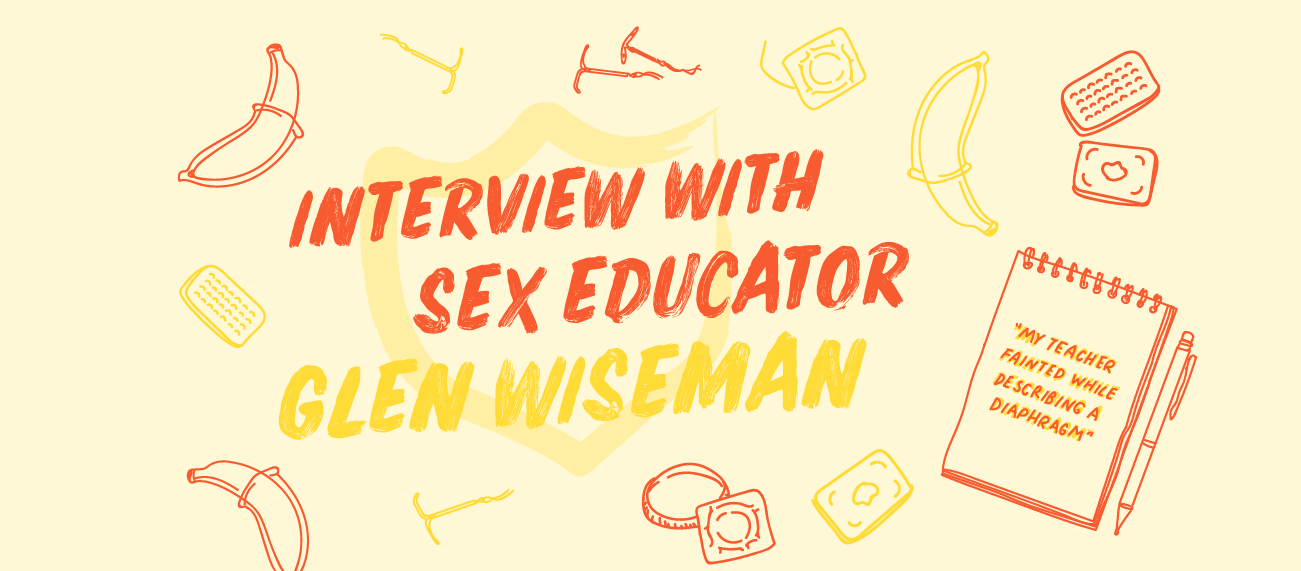Glen Wiseman’s teacher was attempting to describe a diaphragm to her year 10 class during mandatory sex education when she fainted, hitting her head on a desk in the process.
This was one of only three sex education classes Glen remembers throughout his entire school years, none of which discussed sexual pleasure or anything about sex except how not to get girls pregnant.
Glen was in secondary school twenty years ago, so sex education must have improved since then, right?
Maybe not. One in seven 16-25 year olds has never had a relationship and sex education (RSE) class at school, according to a 2016 survey by the Terrance Higgins Trust.
The trust also found that half of the 900 young people surveyed rated the RSE they did have as ‘poor’ or ‘terrible’ while only 10% said it was ‘good’. Clearly, something needs to change.
The times are a’changing (maybe)
Luckily, sex education is due for an upgrade in 2020. The Department of Education has released new sex and relationship education guidelines which, if put into practice, would broaden RSE to include LGBTQ+ identities and relationships, teach students about menstrual health and include information about sex and technology.
This is all good, but will the new guidelines help create a more sex positive, less repressed society? Glen Wiseman, a sex educator who runs a sex education consultancy called The RSE centre, says teenagers are simply not used to talking openly about sex:
“These conversations are always shut down at school or at home, so it’s going to be difficult if you suddenly have to start talking about it,” he explains.
Parents & Sex Education
Why is sex seen as such an embarrassing topic that parents often try to avoid? It could stem from a vicious cycle of bad sex education.
“We can’t blame the parents because they didn’t get the education either,” says Glen, “sometimes we ask the parents what their sex education was like and it’s often almost completely non existant. Adults can really benefit from sex education as well and should be encouraged to do so.”
Glen believes it’s important to get parents feeling comfortable talking about sex because a lot of the societal stigma around these conversations starts in the home, which only leads to misinformation.
Glen believes it’s important to get parents feeling comfortable talking about sex because a lot of the societal stigma around these conversations starts in the home, which only leads to misinformation.
“If we’re not able to be open and talk about things in the family home, we’re going to speak to friends in the playground or we’ll google stuff,” he says, “in the past if you didn’t know what a word meant or a rude word meant you’d look it up in the dictionary. Now, you’ll google it and when you google sexual terms you’ll find images or videos which are often quite aggressive.”
What will future sex education classes look like?
Half the battle is making young people feel comfortable discussing these issues.
“If there’s an hour long lesson, half of that is spent creating that mood of a safe environment where people can discuss and explore how they feel about some of these topics,” Glen says, “you also need to set some ground rules so people feel like it’s going to be okay, they won’t have the mickey taken out of them and what they say won’t be shared around the school.”
When it comes to how the workshop is run, Glen avoids powerpoints and lectures in favour of interactive activities and discussions.
“There is a handshake activity designed by Justin Hancock from Bish UK,” Glen says, “in this activity, people go around the room and shake each other hands or fist bump or whatever without talking to practice rules of verbal non-communication and expressing which types of physical touch they are and are not comfortable with. After that, you can have a group discussion about the activity.”
What about sex?
In Glen’s experience, sex itself isn’t really talked about in sex education. Instead, the lessons focus on how to avoid pregnancy and STDS.
“It’s the elephant in the room really, everyone’s talking about sex but not talking about why the majority of the population do it and why it feels good,” he says, “it’s like having a lesson about seat belts rather than the joys of driving.”
Focusing on biology without real life context isn’t helpful, according to Glen. “It’s a bit of a cop out really,” he says, “ we get people saying they don’t want to corrupt young people, they don’t want to remove their innocence by talking about sexual pleasure, but really it’s not about retaining innocence. It’s about creating ignorance.”
How old is old enough for RSE education?
Glen believes it can start from the age of five. “The changes coming in next year have split sex education into three categories: health education, relationship education and sex education,” he says, “so we won’t be talking to five year olds about sex. We will be talking about friendship, different types of relationships and bodily autonomy.”
“For example, say a child has a creepy uncle they don’t want to hug but people keep telling them ‘hug your uncle’”, he continues, “if that is what they’re taught then when they get to an age where they’re thinking about sexual relationships, they won’t be used to having bodily autonomy and using the word ‘no’.”
For teenagers, relationship education and sex education should be entwined. “One of the biggest things that can go wrong in sexual relationships is heartache,” Glen says “being cheated on can make you question yourself and it has a knock-on effect on our self-esteem and mental health. This is the part of sex education that we often don’t get right and we could do much better.”
Sex education and the morning after pill
According to a survey by the FPA, only 37% of women aged 16-24 were taught about the morning after pill in school or college.
Glen’s organization makes sure that the young people they teach have learned about emergency contraception by age 14 to counteract myths and to make sure the young people know their rights.
Barriers to access is a big problem for young people, according to Glen. “There is a stigma around emergency contraception, but there are sometimes physical barriers as well,” he says, “we have no pharmacy in our local area which will let young people have emergency contraception.”
“They can go to a sexual health clinic, but it’s open 3 hours a week on a Thursday, so what if something happened on a Friday? You should be able to call your GP and get a prescription, but what if the young person is petrified that people will find out?”
The morning after pill has been around for a while, but attitudes are still stuck in the past. “We have a lot of examples of judgement towards young people for taking emergency contraception,” Glen says, “they’ll get the talk about how ‘you really need to be more responsible’ when they have no idea why the young person is asking for it.”
“The condom might’ve split. There’s nothing more responsible than using a condom and they can still split. If you’re accessing emergency contraception, you’re doing the responsible thing.”
The Future Of Sex (Education)
Sex education shouldn’t just be about watching child-birth videos or putting condoms on bananas: they should cover the emotional, physical and social sides of sex.
By taking an inclusive, open approach to sex, we can end the outdated shame and stigma that is still attached to sexuality and, in particular, female sexuality.
The best way to normalise these conversations is simply to have them, which is what ellaOne is doing with our #MyMorningAfter campaign.
If you have taken the morning after pill, share your story below, join the conversation on social and help us end the stigma once and for all.
Words: Sophia Moss
ellaOne® 30mg film-coated tablet contains ulipristal acetate and is indicated for emergency contraception within 120 hours (5 days) of unprotected sex or contraceptive failure. Always read the label.







